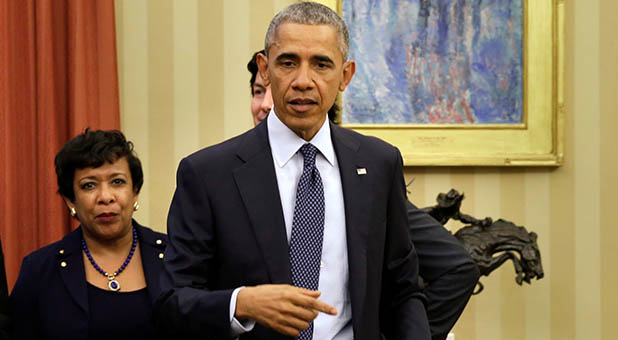President Obama Accused of This ‘Egregious Abuse’ of Power
At least one member of Congress is extremely displeased with the Obama administration’s reaction to North Carolina’s bathroom privacy law.
After the Department of Justice announced it had filed a countersuit against the Tar Heel State, U.S. Rep. Robert Pittinger (R-N.C.) issued not one, but two official statements. In the first, he asked if Attorney General Loretta Lynch would make a call for “thought police”:
“Is Attorney General Lynch preparing a raid by the thought police? How far will President Obama go to bully the State of North Carolina into agreeing with his radical views?
“The Constitution prescribes a limited set of powers to the Federal Government. All other powers are delegated to the States. Furthermore, the Constitution stipulates that Congress makes the law, not President Obama’s unelected political appointees.
“President Obama’s egregious overreach has reached a new zenith with his bully tactics toward the State of North Carolina. May God help us all.”
A short time later, he directed his ire at the president:
“Today, President Obama and Attorney General Lynch proudly announced they will defy the Constitution’s careful separation of powers by creating a new law via press conference rather than legislative process. President Obama took an oath to defend the Constitution of the United States. Why does he refuse to follow it?”
Wednesday, he sat down with CBN News and continued his critique of the administration:
I think what we see once again is the egregious abuse of the authority of the president,” Pittenger said. “We have a defined separation of powers inside our government given by our Founding Fathers. This came from ancient Greece, and the president does not respect that.”
“He sees that he can give out edicts, and that they should be followed. And this is a government of the people, by the people and for the people,” he continued.
“They’re defying the Constitution by not acknowledging the separation of powers,” Pittenger said. “Section One of the Constitution clearly conveys that the authority given in writing legislation is to the United States Congress. So that is our obligation, our requirement, our duty; that’s not the duty of the president.”
















































